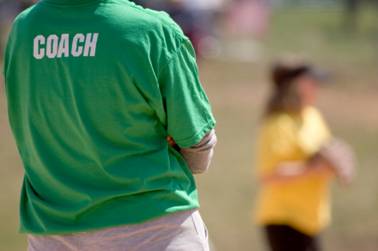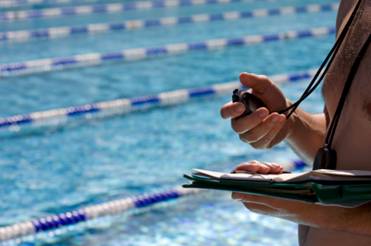The role of the coach
A role can be defined as: - the list of jobs that a coach needs perform. They may need to adopt a variety of roles when coaching to include; a manager, trainer, role model, group control etc...
Effective coaches tend to find new ways of improving existing practices or theories. Some adapt the way in which they practise; others deal with how to play specific strategies in differing situations. Other coaches integrate new developments or technologies to improve performance.
Consider the trampoline coach who has a harness that supports a performer for use while learning somersaults, allowing them the freedom to twist at the same time and add to the range of skill and techniques available.
Performers who work with innovative coaches speak about how they are never bored and always trying something new.
Trainer, educator and instructor
The difference between a teacher, educator and instructor is hard to distinguish. Teaching implies a transfer of learning through demonstration, modelling or instruction. Coaches can also teach emotional and social skills. Young performers in particular can be encouraged to increase their social awareness, learn to cope with losing and winning, and develop self-confidence. Good coaches will be aware that people learn in different ways. They then adapt and use a range of techniques to ensure that learning takes place.
A sound knowledge of anatomy and physiology and fitness theory is essential for coaches. In the role of trainer, you might be expected to design and implement training programmes for your performers.
Motivator
Motivation can come merely by providing a stable environment in which to learn, in a positive and safe atmosphere. Performers who constantly find negativity are certain at some point to become despondent and suffer a reduction in self-confidence and improvement.
Evidence suggests that performers who receive praise and positive feedback are likely to get more from their performances. When providing feedback to performers you would employ the following techniques: KISS, KICK, KISS.
When communicating with performers, the emphasis with this technique would be to start your feedback with a positive comment. Second, a corrective comment can be presented in as positive a manner as possible. Finally, leave the interaction with a positive comment and possible an action plan.
E.g.
KISS - 'Good positioning prior to the shot and you watched the ball well'
KICK - 'You should consider your upper body positioning when connecting with the ball, you should ensure that you follow through your shot'
KISS - 'If you practice these changes, you will almost certainly improve'.
Role model
In almost every coaching situation players will look mostly, if not entirely, to the coach as their source of inspiration and knowledge, never more so than when working with children. Children often imitate the behaviour and manner of their coach. For this reason it is vital that coaching is safe and responsible, and that behaviour is considered good practice. The coach can influence player development in a number of ways.
- Social
- Personal
- Psychological
- Health
- Performance
Friend
Coaches will inevitably end up spending a lot of time with their performers, it is therefore very important that a friendly and respectful environment is created. As performers and coaches may go through many positive and negatives situations together, if the coach can act as a 'friend' it may make the performer more likely to discuss any issues/ideas with them.
Acting as a friend may be more motivational to the performer too. The stronger with coach/friend relationship the more likely the coach is to understand why the performer takes part in sport and what factors affect their motivation.
Manager
The role of a manager is not necessarily as simple as managing the players during coaching sessions. It could involve managing training programmes and a number of administrative tasks such as the accounts, club subscriptions, health and safety documents etc...
The main role of the manager is to often pick the team for competition, however in high level performance it is likely there will be other people such as specialist coaches and support staff that can work it.
Managers should always be striving to get the best ability out of the players, ensuring all training programmes are tailored to the individual and extra support is provided where needed, to help optimal performance to be achieved.
They should have a range of skills, to enable them to do this. To include excellent leadership and the ability to delegate roles and responsibilities to others working on the same team. This is turn will affect the success of a manager.

